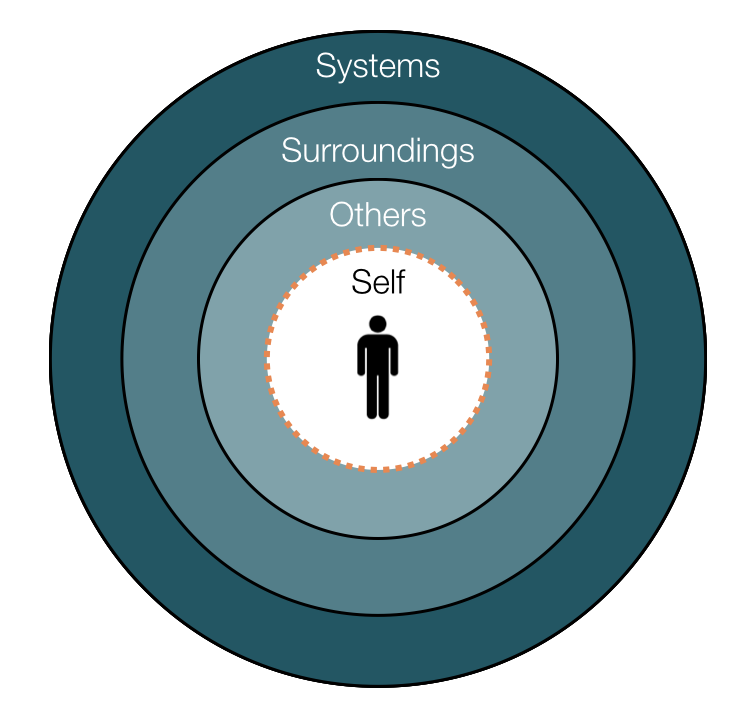We have all failed at some point to meet expectations, either our own expectations or the expectations of someone else. I would guess that most of us did not try to fail, but we did anyway. Most of us thought that we were performing well until we were either told by someone else that we weren’t or we saw the results and determined it for ourselves. The question then becomes...”Why did we fail? What caused the failure?”
Failure Failure occurs for a variety of reasons and understanding the real cause(s) of a person's failure is absolutely critical to the accountability process and to assuring future success for the individual.
Local Rationality We make decisions to perform in specific ways because it makes sense to us to do so. This is called “local rationality”. What may look ridiculous or stupid to someone else, looks perfectly correct to us because of the context that we have at that moment.
The factors that are most obvious, pressing or significant from your point of view aren’t necessarily all that obvious, pressing or significant from another person’s point of view. However, it is that very set of factors that determines what makes sense and what doesn’t.
It is these factors that determine your decision to perform in a given manner. Sometimes these factors lead to failure while other times to success.
Context is Everything Context is everything and understanding that context is absolutely required before we can apply the “Ask” skills in an accountability conversation.
So let’s take a look at look at a contextual causation model for assessing performance.
The Contextual Model We find it helpful to think of context as involving four general factors, each made up of other specific factors which can have an impact on performance.
Gaining an understanding of which specific factors are affecting a person's performance will help us both understand the performance and determine how to help the person improve the performance going forward.
Self One of the general factors involves the individual and we call these the “Self” factors.
- Motivation: Does the person actually care about success? Is the person willing to put out the energy to perform successfully? It should be noted that we have a tendency to attribute most, if not all failure to lack of motivation when in fact it is only one of serval self factors that may be at play. Remember the Fundamental Attribution Error that we discussed last month. So be careful not to guess that failure can be fixed simply by motivating the person.
- Ability: Can the person actually engage in the performance needed for success? Do they have the skill set necessary for success or are they lacking those skills?
- Knowledge: Does the person know how to perform correctly? Have they been given the training necessary for success?
- Habits: Has the person done it the wrong way so many times that it has become engrained to the point that the person is on “auto pilot”?
- Attention: Is the person failing to focus on performing correctly? Is the person distracted for some reason? Has the person done the task so many times that he/she does it without thinking?
Others A person’s performance can also be impacted by what the people around him/her do and say, and we refer to these as the “Others” factors.
- Help: Do people in the workplace (supervisor and coworkers) provide assistance or not? Do they do things that make it difficult or easy to be successful? Do they remove or create barriers to success?
- Pressure: Is there peer pressure to perform in an unacceptable manner? Does the boss knowingly, or unknowingly push the person to perform in a manner that leads to failure? Does the boss create an environment where one aspect of success (e.g. productivity) is seen as more important than another (e.g. safety)?
- Modeling: Do others in the workplace perform in a manner that makes it seem normal to perform in a manner that leads to failure? Or do they perform in a manner that assures success?
Surroundings The workplace itself can also impact performance and we call these the “Surroundings” factors.
- Equipment: Does the person have the right tools/resources to perform successfully? Or is the person forced to adapt tools that are not really fit for the job?
- Climate: Are temperature, light, wind, or other environmental factors impacting success?
- Layout: Are things located in such a way that they make it easier or more difficult to achieve success?
Systems And finally there may be institutional factors that impact performance and we call those the “Systems” factors.
- Rules: Are there requirements from the company, customer, industry or government that make success difficult? Are there rules that are in conflict and force the person to make a choice of which one to follow?
- Rewards/Punishments: Are incentives impacting performance either positively or negatively? Does the incentive program create the need to take short cuts in order to be successful? Does the incentive program reward speed over accuracy
- Procedures: Are accepted procedures actually making success more difficult? Are there actually procedures in place that will help the person achieve success?
Think about a time when you failed to meet expectations. What factor or factors were at play to contribute to that failure? Were you held accountable and, if so, did the person holding you accountable understand why you failed? Did he/she explore your context before creating a fix for your failure?
What's the point?
Next month we will examine the four “Ask” skills that will help you use the Contextual Model to determine what exactly is contributing to an individual’s failure. This is so that you can then help them “Fix” the right things to create a context that will lead to success going forward.


